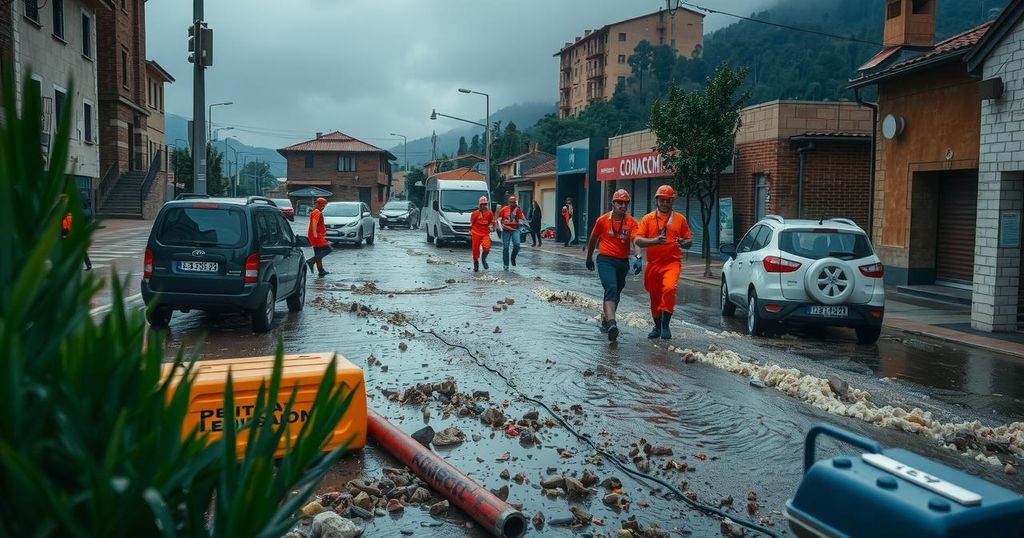Tragic Flash Floods Claim Lives in Southeastern Spain

Flash floods in southeastern Spain have resulted in at least fifty-one deaths, particularly affecting the Valencia region, where some areas received up to twelve inches of rain in a short period. Authorities urge residents to avoid travel, and climate scientists warn that climate change intensifies such extreme weather conditions.
At least fifty-one individuals have tragically perished due to flash floods in southeastern Spain, as reported by the regional authority in Valencia on Wednesday. Torrential rains resulted in some southern and eastern regions of Spain experiencing over twelve inches of rainfall within a span of only a few hours on Tuesday. Videos from Valencia depicted torrents of muddy water inundating the streets, demolishing buildings, and displacing parked vehicles. Carlos Mazón, the regional leader of Valencia, conveyed during a press conference that as rescuers commenced operations in areas previously isolated by the floods, some bodies were recovered. Respecting the affected families, he refrained from providing further details. Authorities have indicated that the current death toll may rise, as these numbers remain provisional. Mazón advised residents in the provinces of Valencia and Castellón against traveling on the roads. Typically, the Valencia region receives an average of 77 millimeters (approximately 3.03 inches) of rain throughout the entire month of October; however, Chiva, located just east of Valencia, recorded an astounding 320 millimeters (12.6 inches) of rain in slightly over four hours, according to the European Severe Weather Database. Flooding has also impacted surrounding cities, including Murcia and Malaga, where certain areas received more than 100 millimeters (4 inches) of rain. Environmental scientists assert that human-induced climate change is exacerbating the frequency and intensity of extreme weather events. As global temperatures increase due to fossil fuel emissions, intense rainfall incidents are becoming both heavier and more common, as warmer oceans enhance storm strength, and a heightened atmospheric temperature allows for greater moisture retention, leading to more torrential downpours. Rainfall warnings remain in effect for various parts of eastern and southern Spain, with expectations of heavy precipitation persisting through the end of the week. This report is developing and will be updated as more information becomes available.
Flash floods are sudden floods that typically occur within six hours of heavy rainfall and can cause significant damage to infrastructure, property, and loss of life. Southeastern Spain, particularly the regions of Valencia, Murcia, and Malaga, has experienced extreme weather events in recent years that have resulted in devastating floods. Climate change has been identified as a contributing factor, leading to an increase in the frequency and severity of such weather phenomena. Meteorological agencies have been monitoring and issuing warnings as weather patterns continue to evolve due to global warming.
The loss of life in southeastern Spain due to flash floods underscores the growing impacts of climate change on weather events. With predictions indicating potentially worsening conditions and increased rainfall, it is imperative for authorities to address infrastructure vulnerabilities and public safety measures to mitigate the risks associated with such extreme weather events in the future.
Original Source: www.accuweather.com







